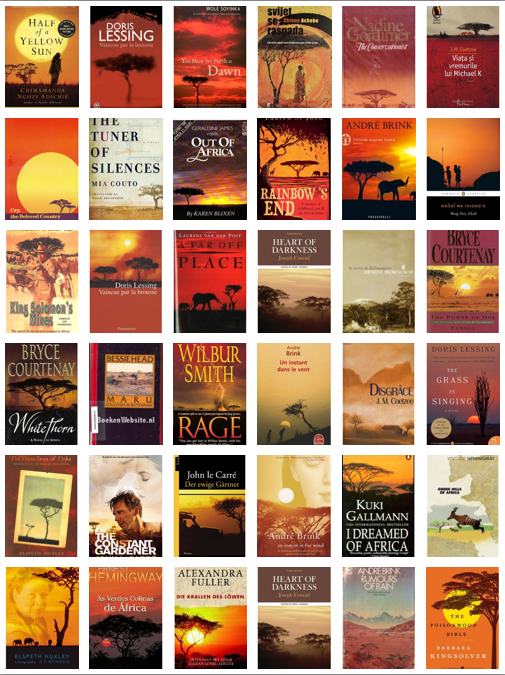
Last week, Africa Is a Country, a blog that documents and skewers Western misconceptions of Africa, ran a fascinating story about book design. It posted a collage of 36 covers of books that were either set in Africa or written by African writers. The texts of the books were as diverse as the geography they covered: Nigeria, Zimbabwe, South Africa, Botswana, Zambia, Mozambique. They were written in wildly divergent styles, by writers that included several Nobel Prize winners. Yet all of books’ covers featured an acacia tree, an orange sunset over the veld, or both.
“In short,” the post said, “the covers of most novels ‘about Africa’ seem to have been designed by someone whose principal idea of the continent comes from The Lion King.”

Image by Simon Stevens
That’s a reasonable diagnosis. But how to solve the underlying problem? Certain books are allowed to stand on their own; others—too often those by African, Muslim, or female authors—are assigned genre stereotypes. Mendelsund suggests that designers should start by initiating conversations with editors about what makes a book unique, so that they have something to respond to visually. And if that fails, and designers are pressured to use an offensive stereotype, Mendelsund says, “We can tell them that it’s racist, xenophobic, whatever.”


